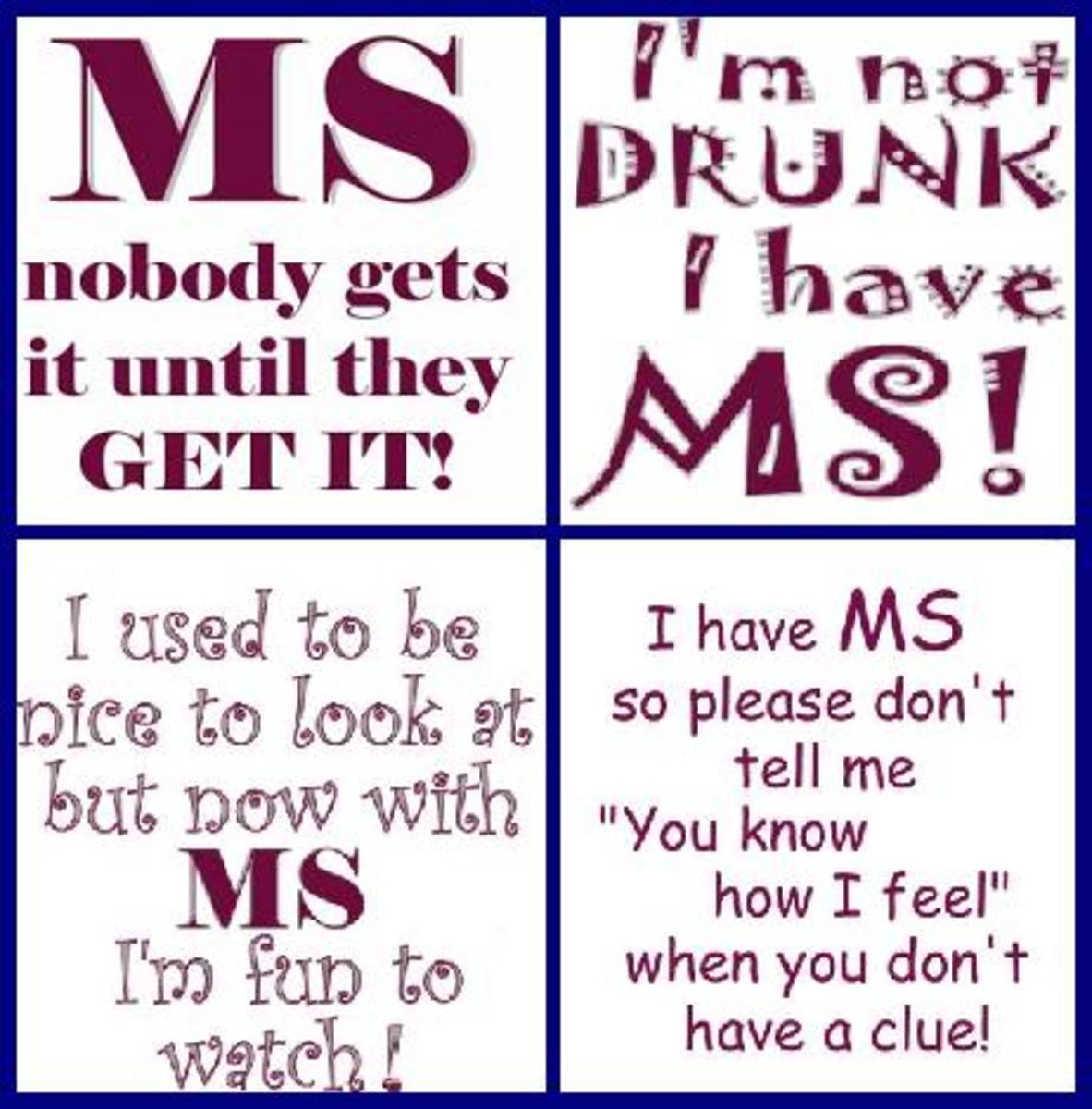Multiple Sclerosis and My Neuropsychological Testing

Short Term Memory Deficits
If you have MS, chances are you've noticed a change in your short term memory. When it gets annoying enough, we often begin searching the Internet for information about MS and memory loss.
That inevitably puts us on the road to understanding cognitive dysfunction and neuropsychology.
This was my road and my path. It lead me to seek out the expert opinion of an area neuropsychologist, who gave me my very first neuropsychological assessment in relation to MS.
Questioning Our Lack of Memory
Have you ever asked yourself the following questions, or made the following comments:
- What's happening to my memory?
- I don't know why my memory is bad these days?
- I'm sorry, what is your name again?
- I was going to say something . . . I forget now.
- I can't remember what I was supposed to pick up at the store.
- I came up here to get something, what was it?
- I can't believe I forgot to pay this bill!
If the above sounds all to familiar to you, then you are one of the 45-65 percent of people with MS who suffer from MS-related cognitive dysfunctions.
If you to are looking for assistance with your deficits, you can consult a neuropsychologist, or a speech/language pathologist, or an occupational therapist.
Related Medical Terms and Definitions
Before I describe my specific examination, it is probably helpful to define some basic medical terms involved in the assessment process, which are relevant to MS.
Neuropsychology: The branch of psychology that deals with the relationship between the nervous system and the brain especially dealing with mental functions such as language, memory and perception.
Neuropsychologist: A psychologist with training that emphasizes brain anatomy, brain function, brain injury, or disease. Administers tests to detect effects of brain dysfunction. They can also track changes in the brain over time.
MRI: Magnetic Resonance Imaging uses strong magnets and pulses of radio waves for imaging the brain and the spine.
Cognitive Functioning: The range of high level brain functioning including the ability to learn, remember, organize, plan, and problem solve.
Brain Atrophy: Atrophy due to demyelination and destruction of nerve cells. (Please see this description of my brain atrophy.)
Neuropsychological Assessment: Testing brain function to evaluate problem solving, attention, memory, language, cognitive, and motor skills. Involves pen and pencil tests and may even include computerized-administered tests.
The First Test I Failed
My Own Neuropsychological Assessment
It was a long day, indeed. If you ever make an appointment, plan for 6-7 hours. If you finish before that time period, you'll be pleasantly surprised, but if you don't, then you won't be shocked.
You might even need to schedule your appointment over a couple of days.
I was administered the tests in 1999. Back then I had just completed my first round of steroids, so there was no significant energy lag.
Failed My Very First Test
After an initial interview and family history, the doctor gave me the same type of test shown on the accompanying video. I just couldn't believe I couldn't perform what I thought was a simple test.
My doctor looked at me and smiled and we joked about my not be able to cheat by looking at my hands. He then explained to his trained technician, some medical mumble-jumble about why I wasn't able to do what I was asked to do.
If I thought I had tasted the bitter taste of defeat, I would soon discover how wrong I was for what I was about to fail would be far more humiliating.
Failed Some More Tests
Although you aren't told the results until your follow-up visit, you don't need a doctor to tell you when you utterly fail to pass a drawing test. Sure there's a much more medical sounding term for it, but in my mind it will always be the test that showed I couldn't draw what I was looking at.
During the follow-up visit, the doctor showed me what I was asked to draw and then showed me what I actually produced. I looked at the original, then looked at my drawing and blurted out: "Why didn't I just . . . . "
The doctor was nodding his head in agreement as if to say 'I know, I was wondering that as well.'
His report said it all though, he wrote of the copying task: "She produces a grossly distorted reproduction despite utilization of multiple trial and error attempts."
He wasn't so clinical with me, though. He kindly stated that maybe I became so focused on the details of the assignment that I didn't see the big picture.
You know and I know that was just a nice way of saying, "You can't see the forest for the trees!"
Results
I received written confirmation that my memory was as bad as I thought it was, which in a strange way was a little bit of a relief.
So many times you start feeling guilty about what seems like silly mistakes or deficiencies. When I found out there was an actual lesion or lesions responsible for my difficulties, lesions I could do nothing about, it made me feel a little less angry and frustrated. I realized I would now have to learn how to accept my limitations and figure out what if anything I could do to lessen the impact of the cognitive difficulties.
It was mentioned that old information was well-retained, but as for new information, forget about it. My husband and I are dumbfounded sometimes by my ability to recall days, events, and times prior to my 1993 diagnosis, but when it comes to remembering something or someone I met a month or even a day ago, I'm unable.
We have a memory routine now of making sure I respond audibly when he tells me something important. It seems I have a better chance of remembering something if I'm concentrating enough to respond to one specific item. If either one of us forgets and we talk about a couple of things at a time, it doesn't even register.
Helpful Aids
It was suggested that I keep making lists, get an organizer, and do whatever it takes to help me remember.
Aricept
I went the medical route and tried the drug Aricept . It is prescribed off-label for MS because it was initially tested and approved by the FDA for Alzheimer's, not MS. It did help me to concentrate to a greater degree, which made me very happy. I only took it for maybe a year or so, as I could tell I didn't need it any more.
25 Years Living With MS
The lesions affecting my concentration are unnoticeable at times but then very noticeable at other times. If I am overly fatigued it is almost impossible to concentrate and keep tasks organized in my mind. I still have much difficulty with other aspects of my cognitive functioning, but it is something I have grown used to dealing with.








